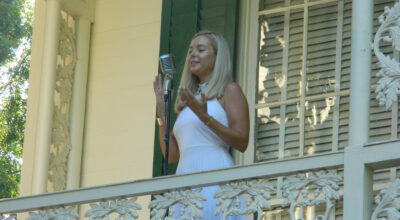Books about books can inspire a reader to keep on reading
Published 12:00 am Sunday, November 23, 2014
By Rebecca Hyde
Rowan Public Library
Whenever I seem to flag in my reading (like an exercise regimen I’m not fully carrying out, with a good measure of guilt), I find that reading a book about books and their readers provides a surge of energy.
The approaches offered in these books (subject heading “Books and Reading “) are varied. Some I can only partially adopt, but all are absorbing because I’m sharing the feeling that reading is engaging and worth my time.
My latest energy boost comes from “The Shelf: Adventures in Extreme Reading” by Phyllis Rose. Rose is a literary critic, author and editor. She’s also an engaged reader, experiencing the thrill of discoveries from the classics to gumshoe detective stories. Her curiosity and doggedness lead to searches on the Internet, examination of films based on books, and tracking down reclusive authors.
The “Shelf,” Rose states in Chapter One, is the “history of an experiment.” Rose believes that literary critics (and she is one), wrongly favor the famous and canonical. She wanted to “sample more democratically the actual ground of literature.” So Rose chose a fiction shelf in the New York Society Library, of which she’s a member with borrowing privileges.
She made up a few guiding principles in choosing: no work by someone she knew, no more than three books had to be read of a run by one author, and the order of reading didn’t matter. She selected shelf LEQ – LES, running from William Le Queux to John Lescroart.
Each chapter in Rose’s book is an adventure in reading. In “The Myth of the Book: A Hero of Our Time” by Lermontov, Rose reads four translations, with varying degrees of success. The egotistical Pechorin remains uninteresting. The “romantic hero” in her literary studies had never been appealing. But now Rose makes a real-life association. Looking at her own son, who happens to be visiting with his wife and baby, Rose sees a young man whose youthful egotism disappeared when he became a father. This post-adolescent Pechorin needs to move on to fatherhood.
In the chapter “Literary Evolution: The Phantom of the Opera,” Rose moves from the novel by Gaston Leroux to an examination of the silent film, starring Lon Chaney, to Andrew Lloyd Webber’s musical. She researches the Paris Opera House (now the Palais Garnier) to gain an understanding of the architecture’s impact on the story. She is intrigued by the silent film’s perfect retelling of the Phantom, and without music.
Along the way (“Domesticities: Margaret Leroy and Lisa Lerner”), Rose reveals her philosophy of life and why reading great fiction fills a need: “For me, spontaneity, inclusiveness, and uniqueness are marks of great fiction, as they are of a satisfying life, but that is a personal choice.”
In a final chapter (“Immortality”), Rose sums up the results of her experiment. She has met 11 people (the “Shelf” authors), none of whom she had known at all. She has gained a respect for the whole range of the literary enterprise, for writers of all sorts, because life is difficult, and public attention may be short-lived. They are all in some way “valiant.” The book is an exhilarating experience.
November closings: Nov. 26, close at 1 p.m.; Nov. 27-28, Thanksgiving, regular hours resume Saturday, Nov. 29.
Displays for November: headquarters, Carolina Historical Association Metal Detector Club; South, Rowan Doll Society by Gayle Hansen; East, Holiday Village by Mary Earnhardt.
Literacy: Call the Rowan County Literacy Council at 704-216-8266 for more information on teaching or receiving literacy tutoring for English speakers or for those for whom English is a second language.
Children’s story time: Weekly through Nov. 26. For more information, call 704-216-8234.
• Baby Time — A loosely interactive program introducing simple stories and songs to babies 6–23 months old with a parent or caregiver. Program lasts 30 minutes. Headquarters, Wednesdays, 10 a.m.; East, Mondays, 10 a.m.
• Toddler Time — Focused on sharing books, singing songs and encouraging listening skills for children ages 18–35 months with a parent or caregiver; lasts 30 minutes. Headquarters, Tuesdays, 10:30 a.m.; East, Mondays, 11 a.m.
• Tiny Tumblers — A loosely interactive program introducing simple stories, musical scarves and instruments for babies 6-23 months old with a parent or caregiver. The same program is offered two times per week; lasts 30 minutes. South, Tuesdays and Thursdays, 10:30 a.m.
• Preschool Time — To encourage the exploration of books and build reading readiness skills for children ages 3-5 with a parent or caregiver; lasts 30 minutes. Headquarters, Thursdays, 10:30 a.m.; East, Thursdays, 10:30 a.m. and 1:30 p.m.; South, Tuesdays, 1:30 p.m.
• Noodlehead Story Time — For children ages 4-8 to enjoy listening to silly books and tales together; lasts 30 minutes. Headquarters, Thursdays, 4 p.m.; South, Mondays, 4 p.m.
• Art programs — School-age children can learn different art terms and techniques and work on art projects. Program lasts 30 minutes. Headquarters, Art in the Afternoon, Thursdays, 4:30 p.m.; East, Emma’s Easel, Thursdays, 4 p.m.; South, Art with Char, Wednesdays, 4 p.m.



